| Uncle Al's Pictorial Pearls of Wisdom from the Ontarios - 4 a potpourri of educational items suggested by the photos |
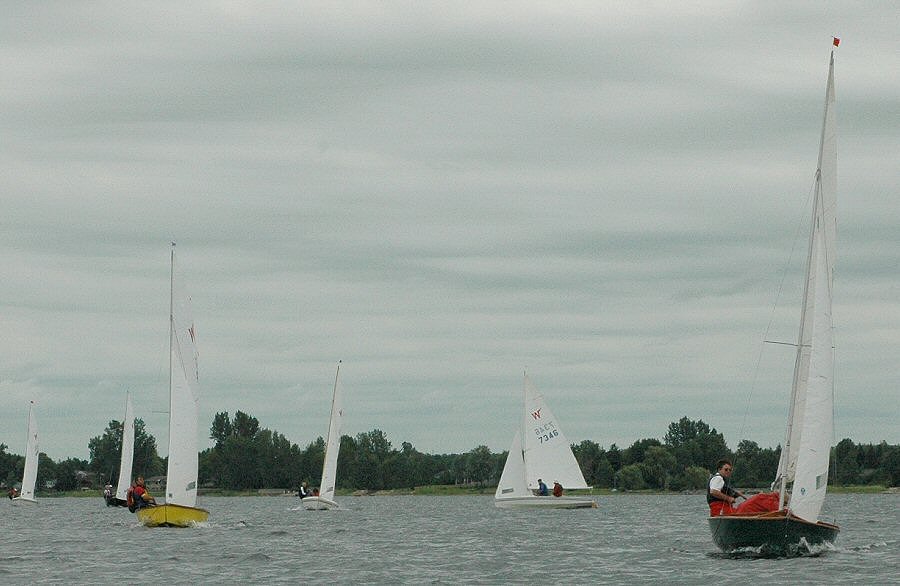 |
| About to round the windward mark,Al reaches to
leeward to unhook the spi halyard so that all will be ready for a fast hoist - we hope. ... |
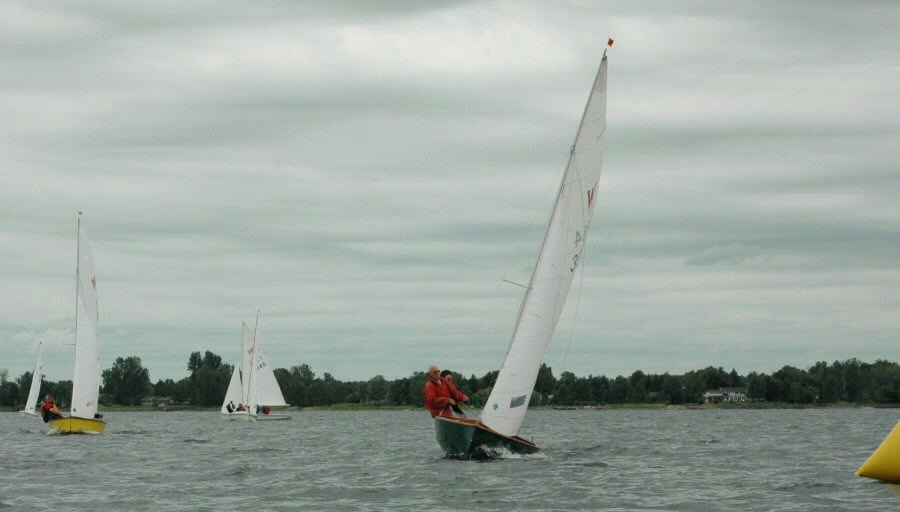 |
|
Well, when you're hot, you're
hot. Marc and Al get a nice lift just before the mark. This is one time
it pays to "put some money in the bank" by sailing high of the mark.
Just as well, too, since we are about to ...
... |
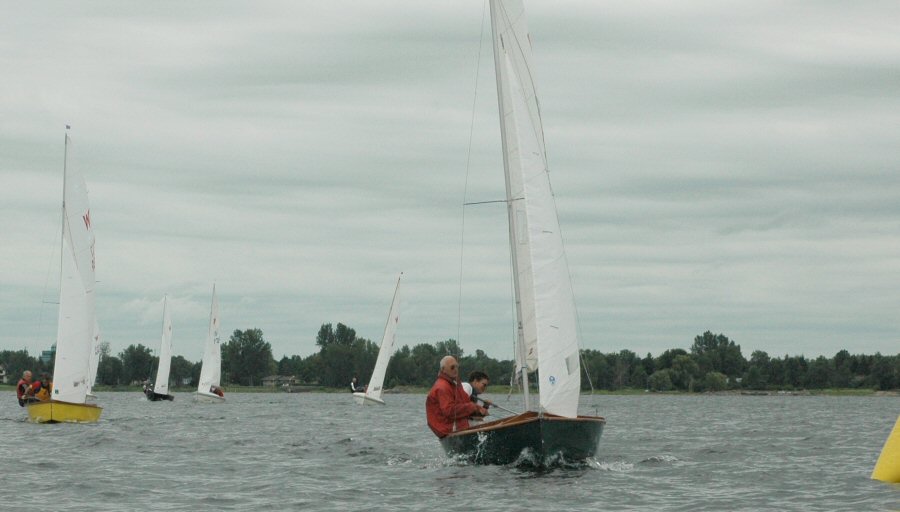 |
| ... get knocked. ... |
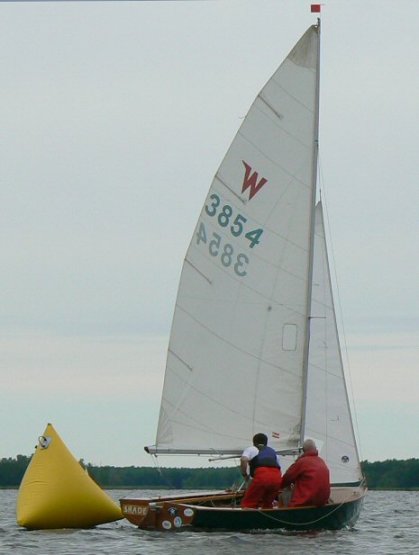 |
| Marc stands up to hoist the
chute while Al stays put to heel the boat to windward. ... ... |
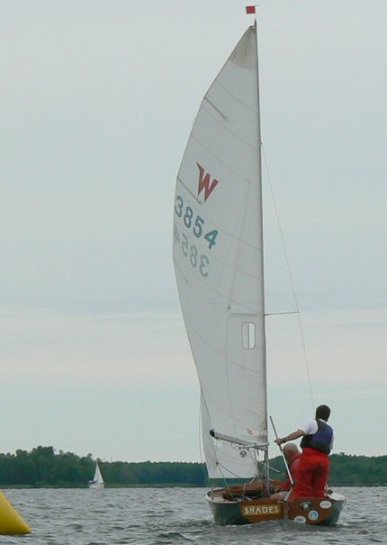 |
| Once we're on course, we should
get that vang tightened to keep the boom level rather than angled up!!
Tsk! Tsk! ... |
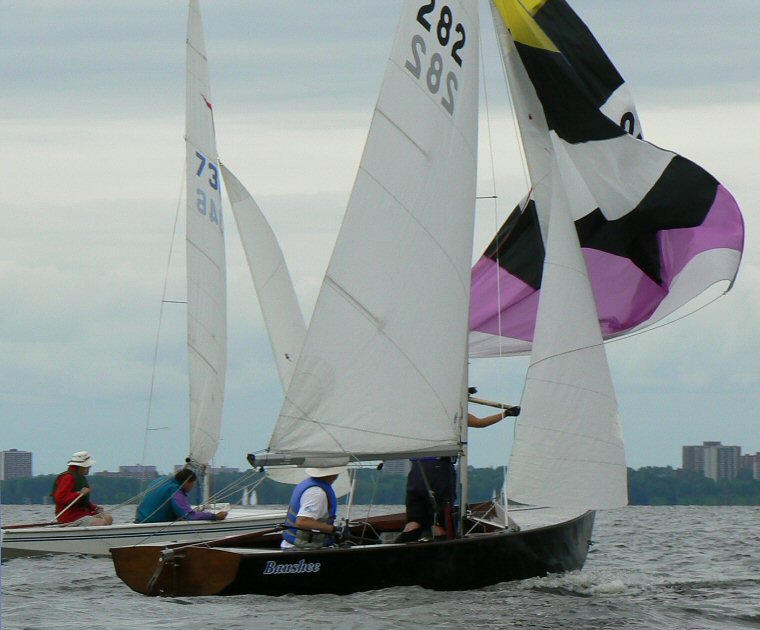 |
| This might be a perfect spot for
Dave (282) to head way down: Not only would that make things easier for
crew, Carol, but it would give Dave separation from Tim to windward of
him, and let him sail through Tim's wind shadow more easily. ... |
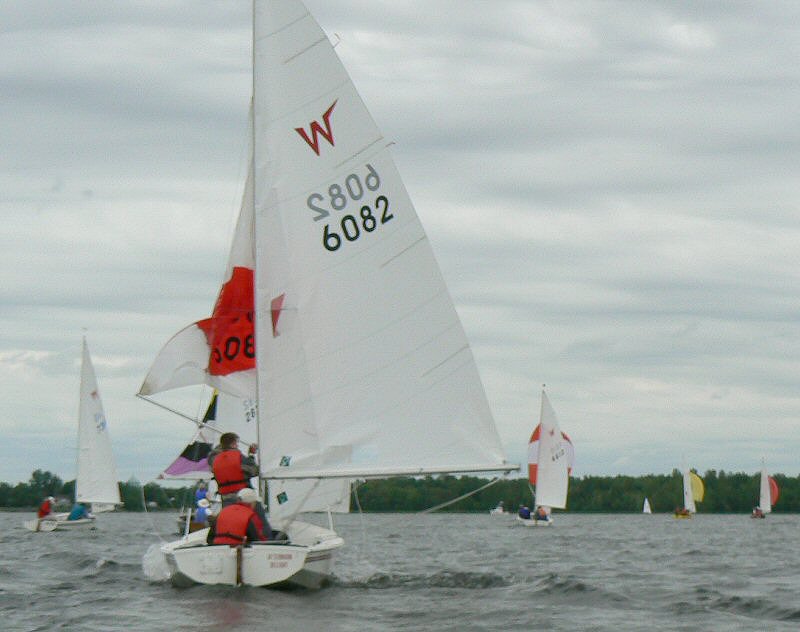 |
|
Ditto for Brian: If he bore
away
to a near-run, the spi would naturally blow out the front of the boat
and let crew, John, have a much
easier time getting the spi reset. And it would take only a few seconds
of running down which would cost Brian minimal distance.
... |
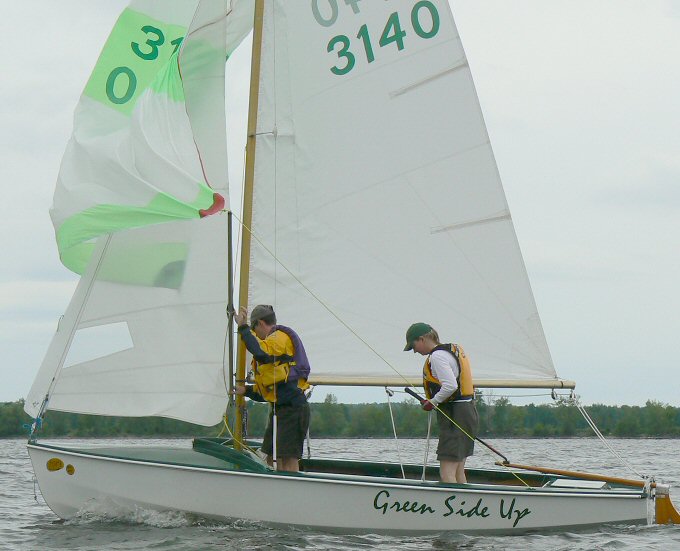 |
|
This is more or less what I
meant: Note how Lori is sailing low enough that the spi is blowing out
the front of the boat, which makes everything easier for crew, Jason.
Once to spi is reset, they can sail higher at their convenience and
still easily make the mark.
... |
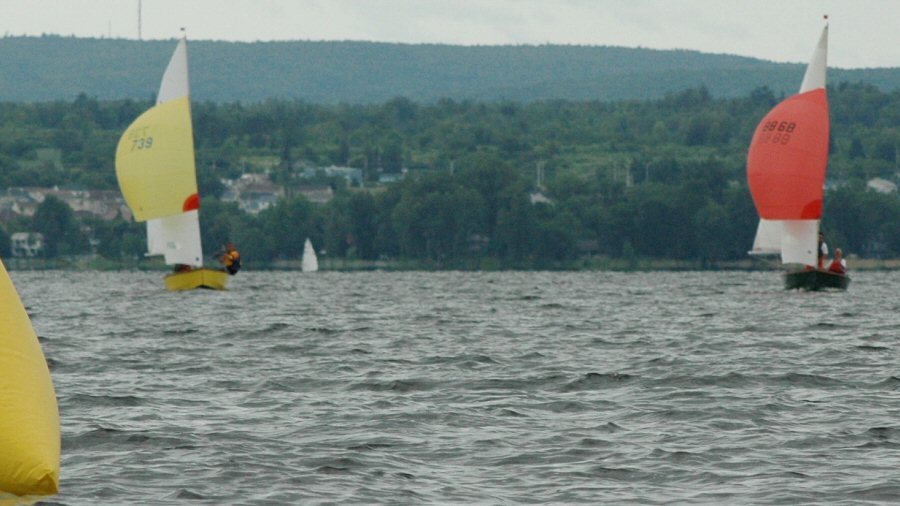 |
|
... |
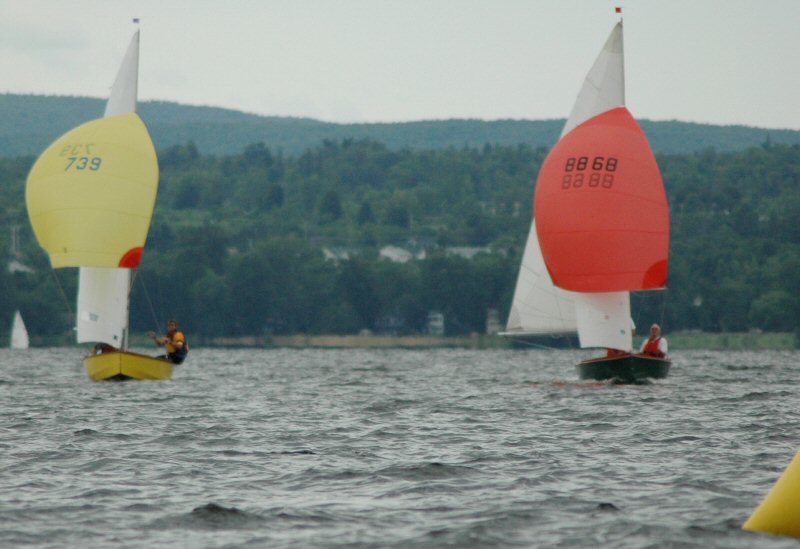 |
| A lesser advantage of running
down towards the mark is that Marc will be able to
stand in the boat and keep the spi flying without the pole as Al stows
it before the takedown. ... |
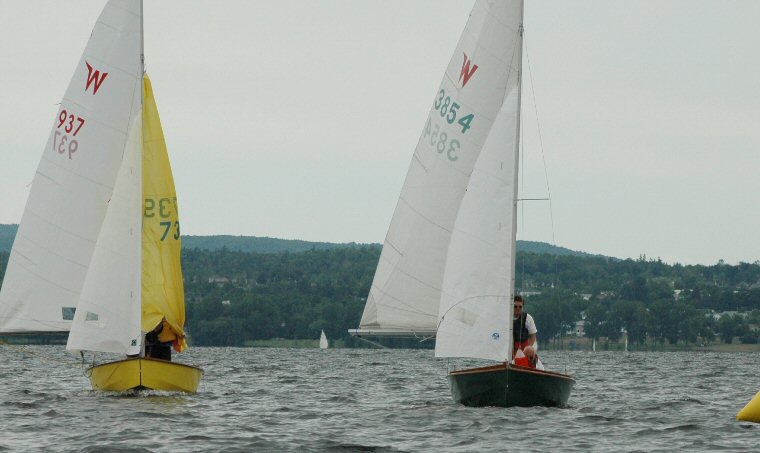 |
| A quick douse and ... ... |
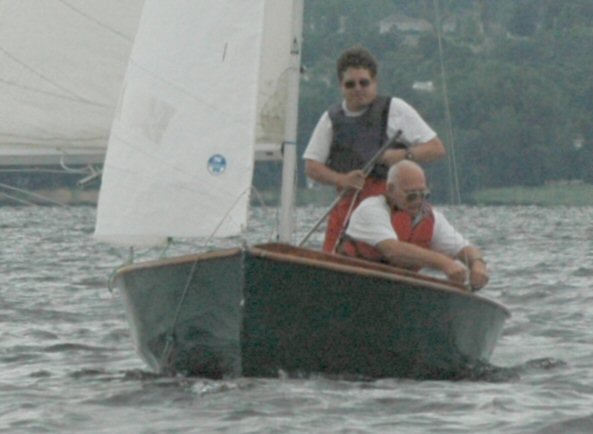 |
|
... Al even has time to stow
the spi halyard in its hook by the shroud. This is a great time to get
everything all set for the
beat early: Bill is safely blocked off, so an early douse costs
nothing, and will let Marc and Al be sure they'll start beat #2 with
all cylinders firing as they work to protect this narrowest of leads
from an excellent challenger.
... |
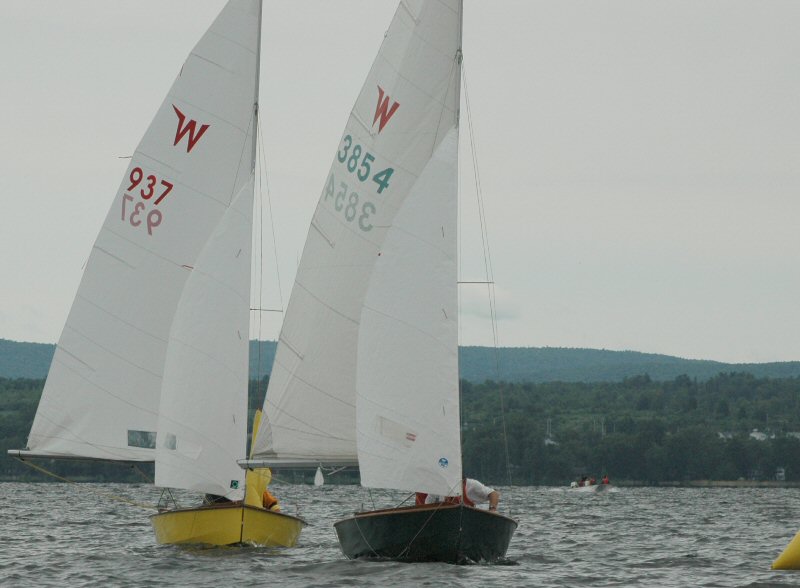 |
| Al makes sure the board is full
down. Note how our sails do not come in too soon!! ... |
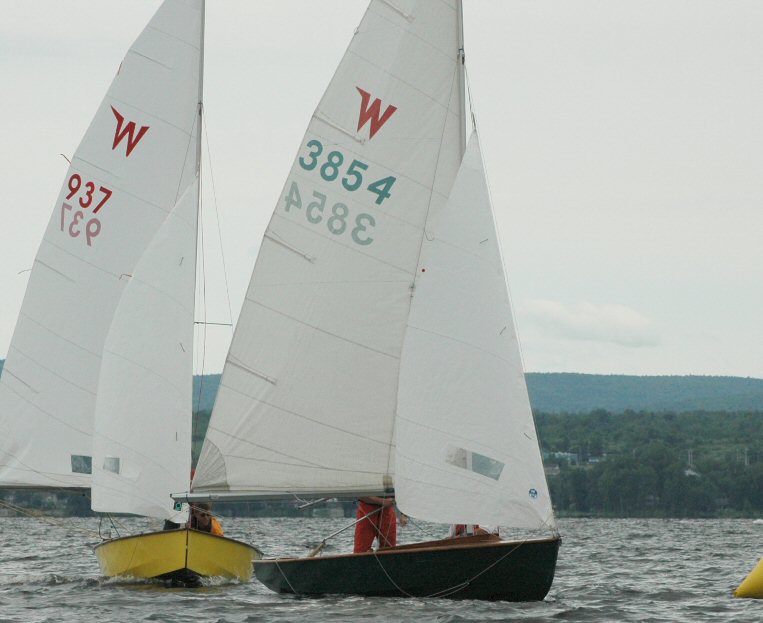 |
| As Marc begins to round, Al
brings the jib in only ... ... |
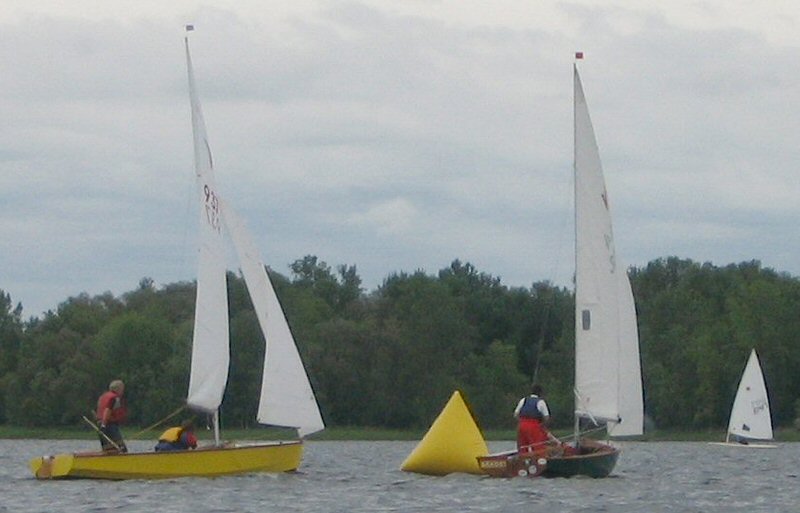 |
| ... as much as is necessary. ... |
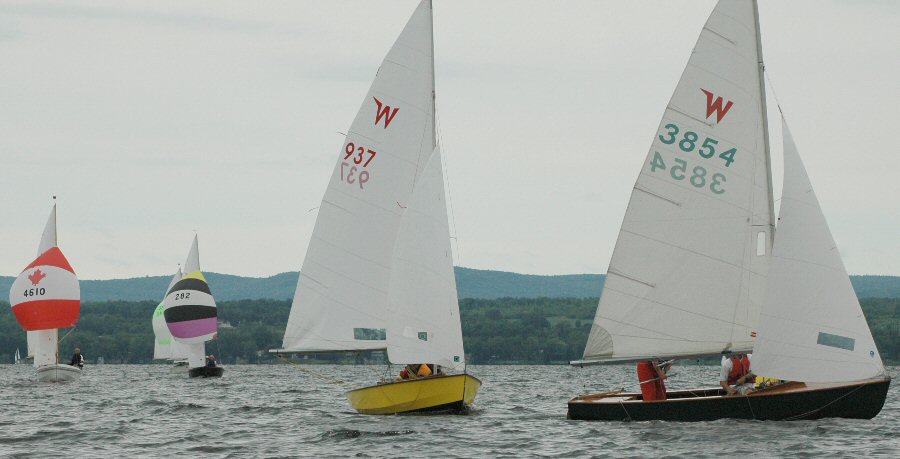 |
| Note how Al has cleated the jib
in a slightly undersheeted position while helping Marc get the main in
by using both hands for one second to crank the main in. Now Al is
ready to fine tune the jib sheet, but first
... ... |
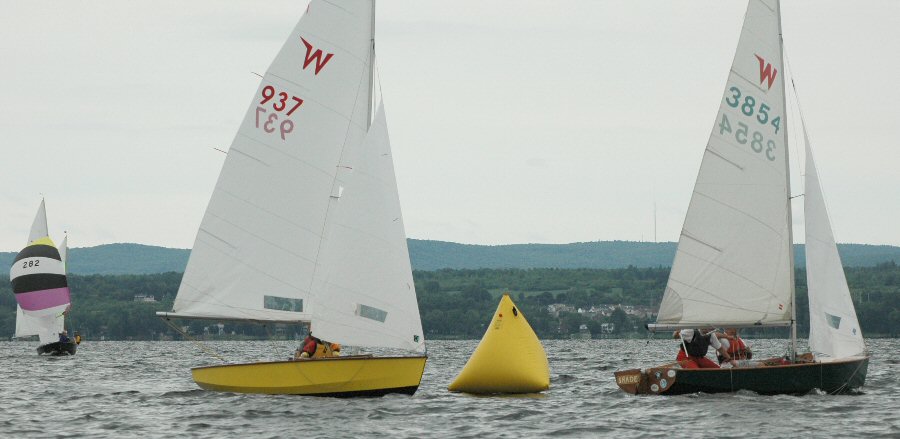 |
| ... Marc will luff up very
briefly, to discourage Bill from trying to stick his bow to windward of
our transom where he could block us from tacking. ... |
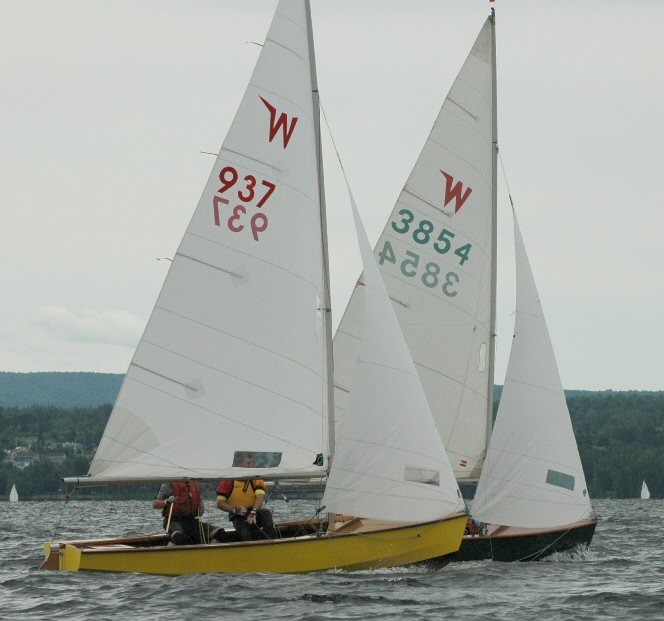 |
| Success!! Now we have Bill
tucked away exactly where we want him!
Of course, the trick is not to ... ... |
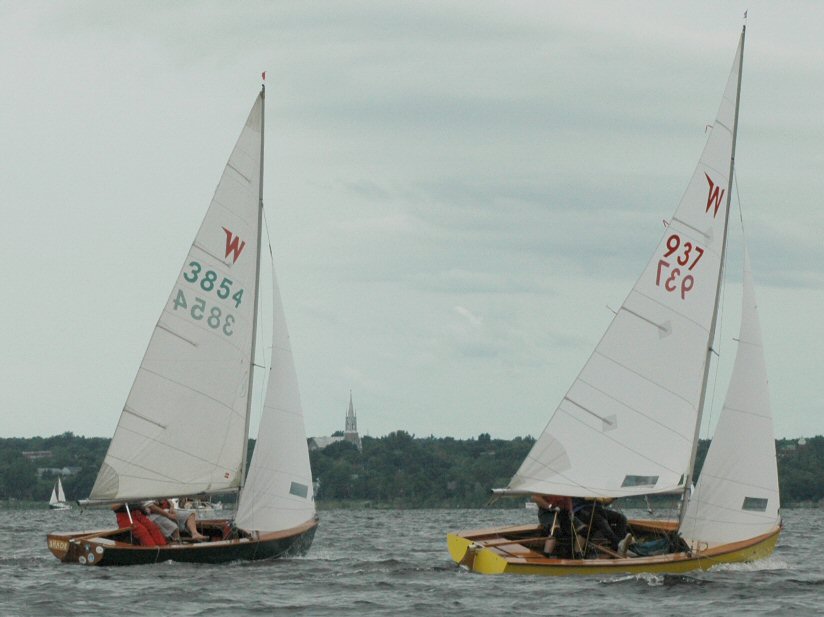 |
|
... let your opponent through
so far that he can backwind you! Here, Bill has wisely gone low for a
bit to make sure Marc won't be sitting on his wind. This is good for
both boats (win-win) as they can now do some useful boat speed testing
against each other, which will help them against all the other boats in
the fleet.
... |
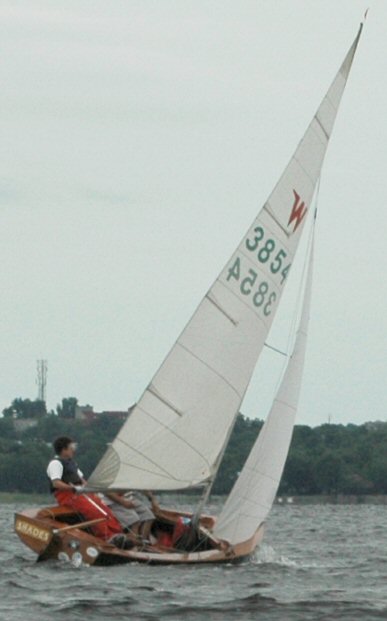 |
| If Al can't hike the boat flat
PDQ, Marc will (a) let SHADES
round up a bit, and (b) ease the main some. So far, judging by the lack
of turbulence around the rudder, the heel is not a problem. ... |
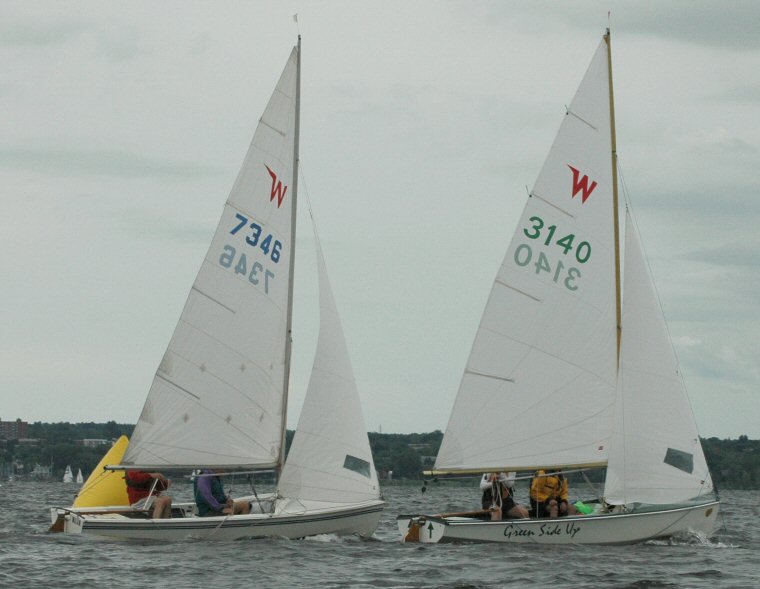 |
| Note that by
not luffing up briefly around the mark, Lori has ... ... |
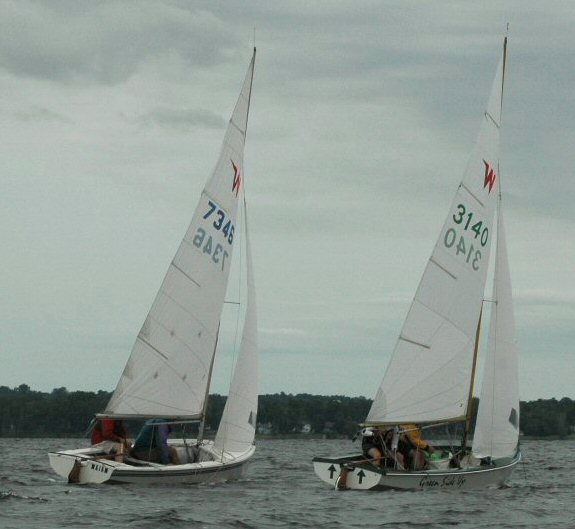 |
| ... let Tim stick his nose in to
windward where he now has her trapped on port
tack. ... |
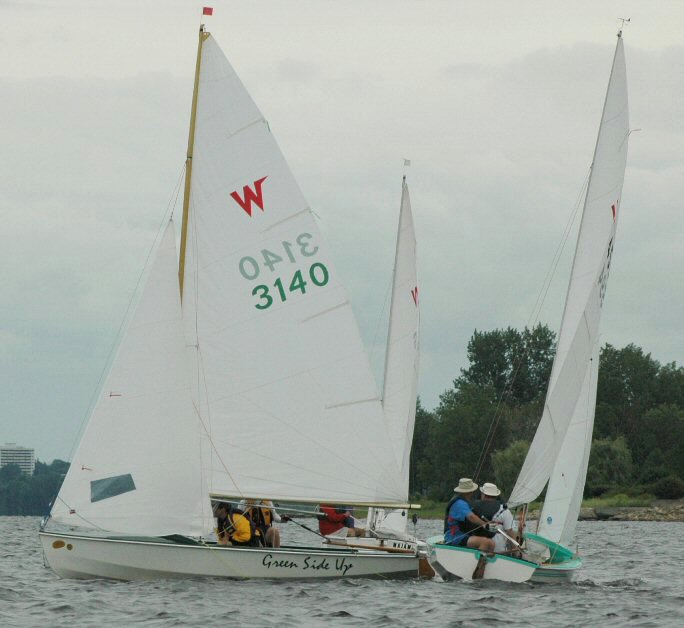 |
|
Unless Jamie (r) has an urgent reason to stay on
port, he would
have been better off to tack and lee bow Lori, something he could
easily have done, given the fact that he is having to bear away to keep
clear of Lori. By tacking, Jamie would have retained clear air, whereas
now, he has just sailed into Tim's backwind!
... |
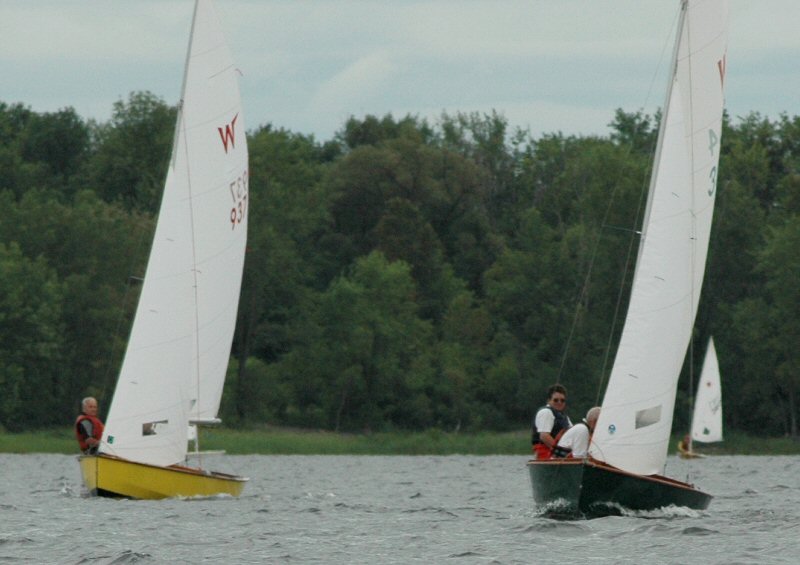 |
|
... |
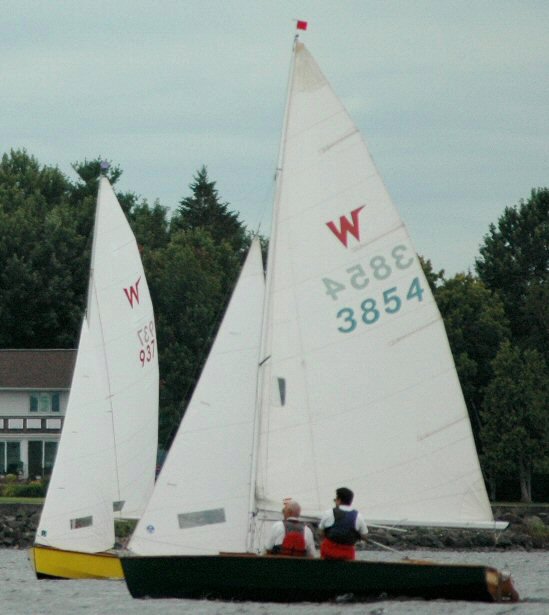 |
| ... the latter tacks across for
two good reasons: 1. if Bill is consistently sailing in a lift that
Marc has not been getting, the latter will do well to go over and get
the same benefits; 2. by going ... ... |
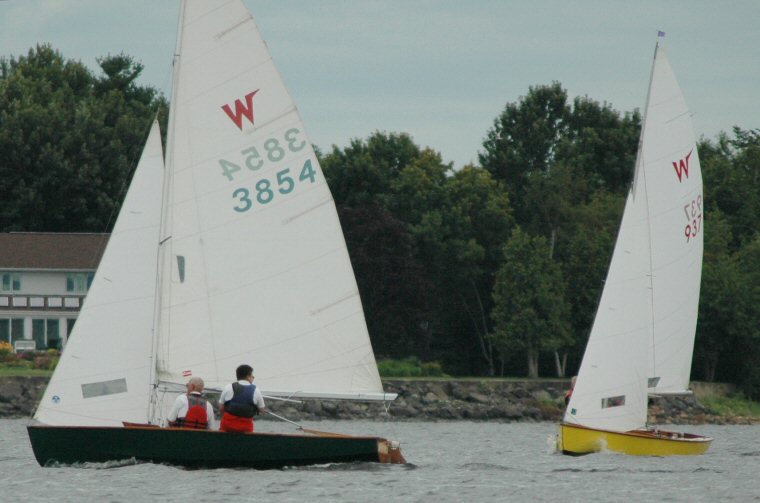 |
|
... |
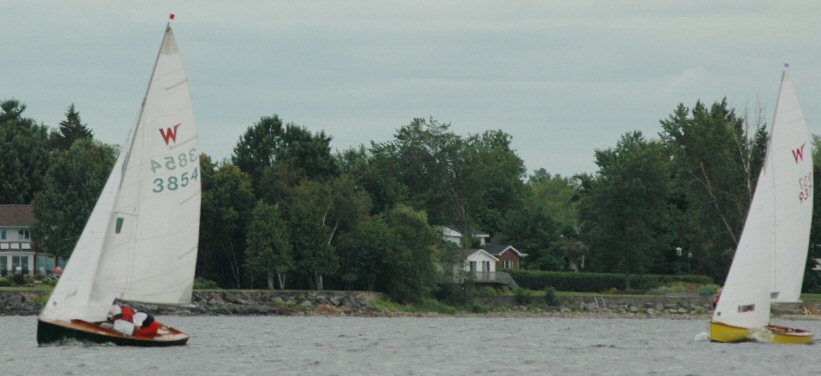 |
| ... between Bill and the mark.
Now, a big lift can no longer move Bill past Marc. Of course, had a
knock come along while Marc was still to leeward and ahead, he would
have gained big time, but why take chances when you're already
ahead? ... |
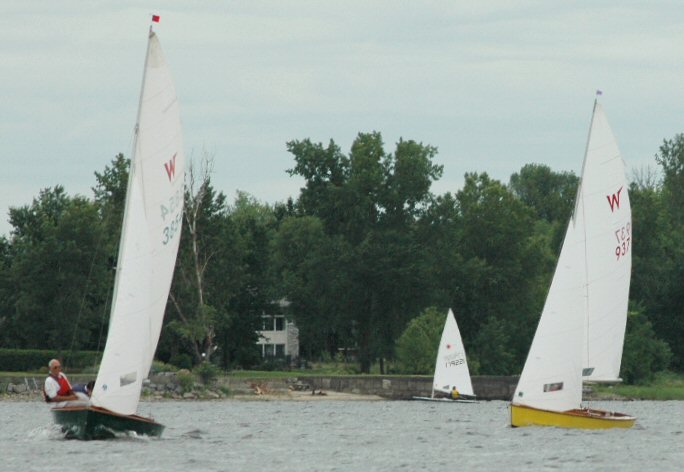 |
| Right after completing his tack,
Marc briefly foots to get his speed back up. |
| next Pearls page return to index |